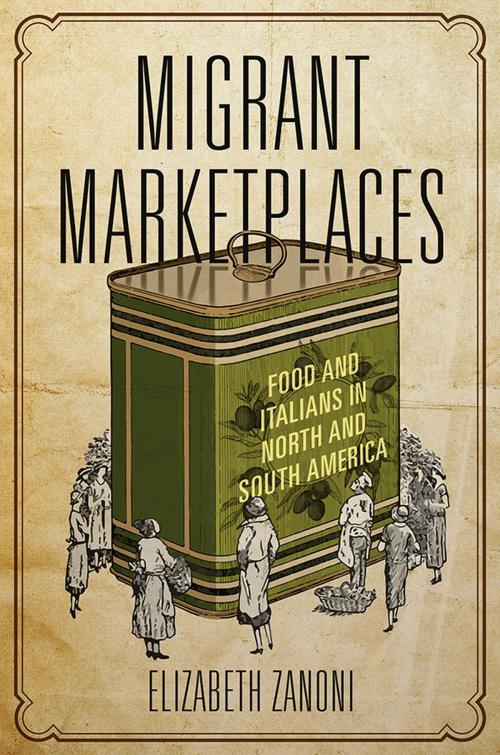Migrant Marketplaces
Food and Italians in North and South America
Nonfiction, Food & Drink, International, European, Italian, Food Writing| Author: | Elizabeth Zanoni | ISBN: | 9780252050329 |
| Publisher: | University of Illinois Press | Publication: | March 21, 2018 |
| Imprint: | University of Illinois Press | Language: | English |
| Author: | Elizabeth Zanoni |
| ISBN: | 9780252050329 |
| Publisher: | University of Illinois Press |
| Publication: | March 21, 2018 |
| Imprint: | University of Illinois Press |
| Language: | English |
Italian immigrants to the United States and Argentina hungered for the products of home. Merchants imported Italian cheese, wine, olive oil, and other commodities to meet the demand. The two sides met in migrant marketplaces--urban spaces that linked a mobile people with mobile goods in both real and imagined ways. Elizabeth Zanoni provides a cutting-edge comparative look at Italian people and products on the move between 1880 and 1940. Concentrating on foodstuffs--a trade dominated by Italian entrepreneurs in New York and Buenos Aires --Zanoni reveals how consumption of these increasingly global imports affected consumer habits and identities and sparked changing and competing connections between gender, nationality, and ethnicity. Women in particular--by tradition tasked with buying and preparing food--had complex interactions that influenced both global trade and their community economies. Zanoni conveys the complicated and often fraught values and meanings that surrounded food, meals, and shopping.
Italian immigrants to the United States and Argentina hungered for the products of home. Merchants imported Italian cheese, wine, olive oil, and other commodities to meet the demand. The two sides met in migrant marketplaces--urban spaces that linked a mobile people with mobile goods in both real and imagined ways. Elizabeth Zanoni provides a cutting-edge comparative look at Italian people and products on the move between 1880 and 1940. Concentrating on foodstuffs--a trade dominated by Italian entrepreneurs in New York and Buenos Aires --Zanoni reveals how consumption of these increasingly global imports affected consumer habits and identities and sparked changing and competing connections between gender, nationality, and ethnicity. Women in particular--by tradition tasked with buying and preparing food--had complex interactions that influenced both global trade and their community economies. Zanoni conveys the complicated and often fraught values and meanings that surrounded food, meals, and shopping.















